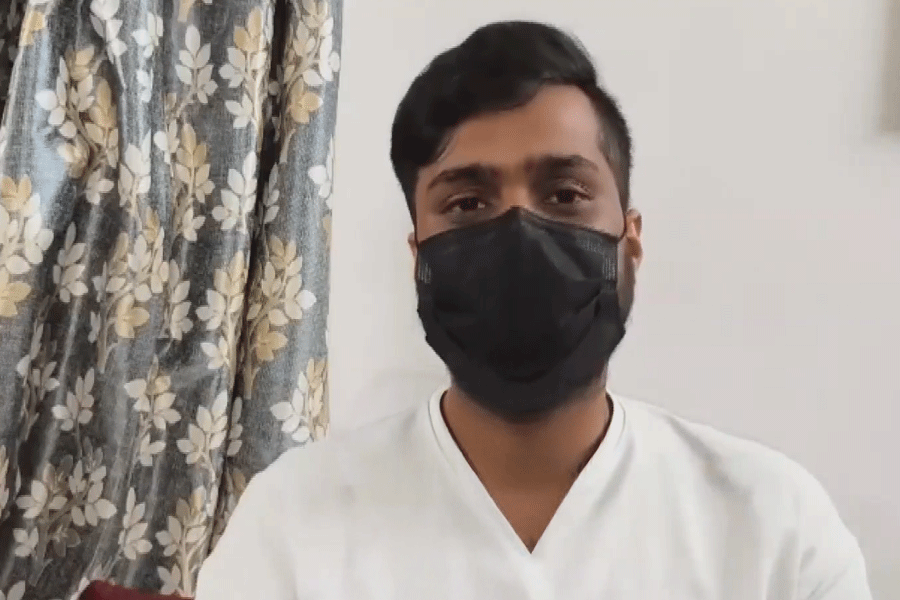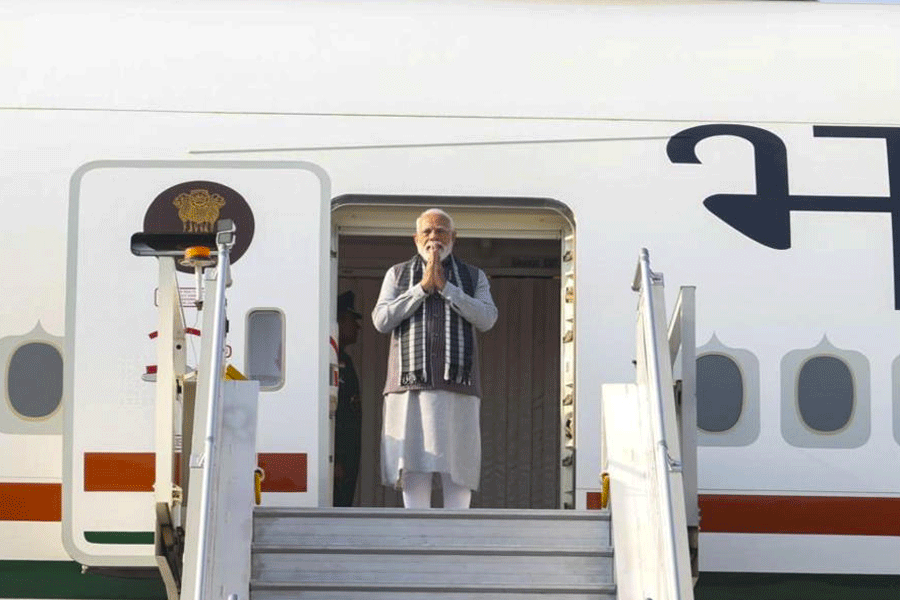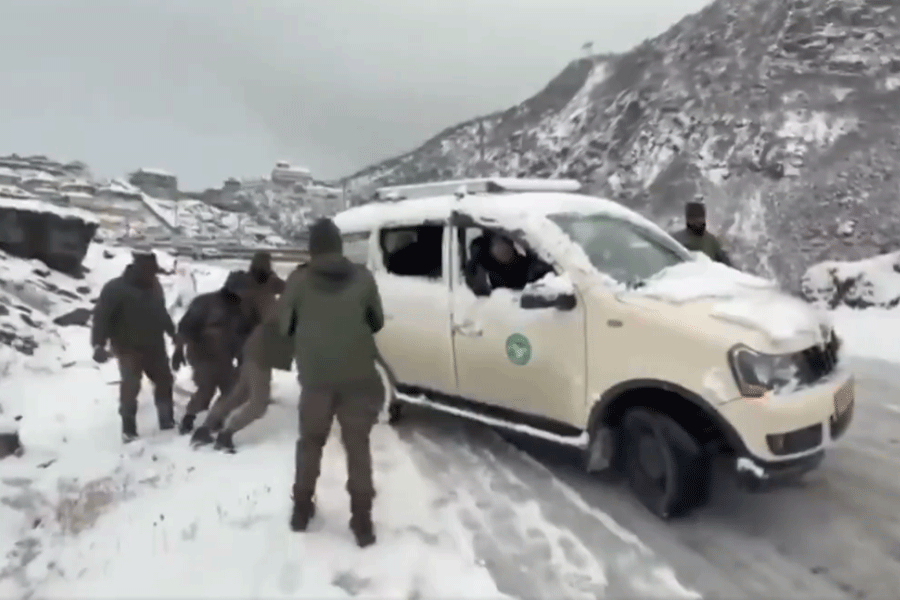 |
| (Clockwise from left) Broken trees and electric posts on the MKCG Medical College and Hospital campus, a record room inside the chief district medical officer's office and damage at the City Hospital in Berhampur. Pictures by Ashwinee Pati |
Berhampur, Oct. 20: The concrete structure of the MKCG Medical College and Hospital was not enough to assure the patients that Cyclone Phailin will do no harm to them.
“We were scared when the gusty wind began to hit the hospital building at a speed more than 200km per hour. The entire room was shaking. The attendants pulled our beds to the centre of the room to avoid any injury from the concrete slabs that were falling from the wall,” said Prabhakar Pradhan, a septuagenarian patient from his bed at the hospital.
Pradhan said the night of October 12, when Phailin hit the state, reminded him of the 1999 supercyclone, in which he had lost all his belongings. Pradhan is undergoing treatment for stomach pain and had to undergo an operation at the hospital two days ago.
Like him, there were many others in this premier state-run hospital who were not in a position to move to safer places when the storm struck.
All that they could do was to pray for their own safety and the security of their relatives from the hospital bed.
Though the old man survived the cyclone, he had a bad day about a week later when the ceiling fan over his hospital bed fell on him on Friday evening. Fortunately, he escaped with minor injuries.
The hospital authorities, however, said they were ready to tackle the post-cyclone situation.
“We had kept nine generators on stand-by as we knew that electricity would be disrupted. Besides, we had told the Public Health Engineering Organisation to provide us with water. As the small overhead tanks were blown off during the cyclone, we faced hardship to provide water to the patients. But, even then we managed to do our best,” said hospital superintendent Ashok Kumar Behera.
All the undergraduate students of the medical college had gone home during the Puja vacation, though post-graduate students had stayed back. “No casualty was reported on the MKCG premises during the cyclone,” he said.
Behera said that several intensive care units and the biomedical waste treatment plant of the hospital had been damaged in the storm.
The storm has uprooted many trees on the hospital campus. Power supply has been restored in several departments, while a few units of the hospital are yet to get electricity after the cyclone.
Phailin has also damaged the old hospital building, the ophthalmology department, the X-ray unit and the radiology department.
The extent of damage to the records room of the hospital has made it almost impossible for officials to retrieve documents after the disaster.
Chief district medical officer Prasanna Kar said they did their best to provide service to the patients even when the storm raged.
“We had brought pregnant women in our area to the hospital much before the cyclone struck. We had provided generators to all the community and public health care centres in the district,” said Kar.
Kar said his teams were taking steps to prevent water-borne diseases such as diarrhoea, measles and dengue in the post-cyclone phase.
“We are providing people with chlorine treated water and medicines,” Kar said.











